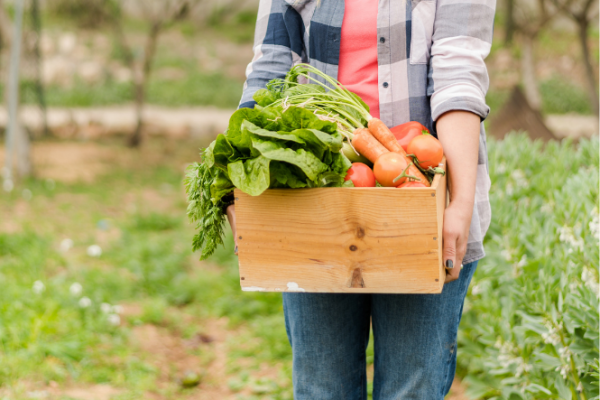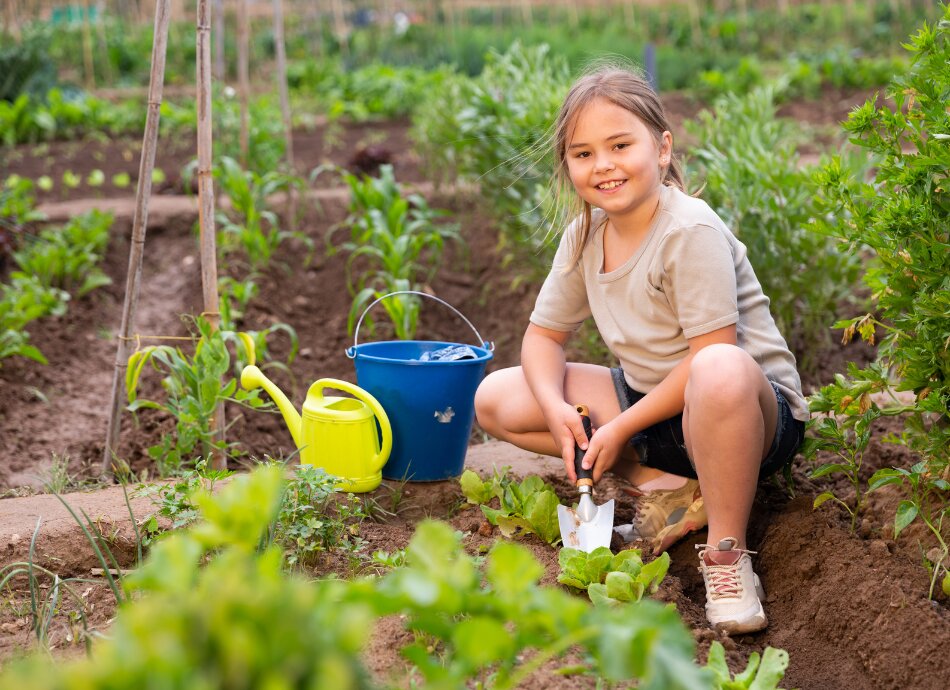1. Get organised and plan your weekly meals
Making a weekly meal plan, including breakfast, lunch, dinner and snacks is key. Know how much you have to spend and try to stick to it. A meal plan enables you to see exactly what you need to buy and how much you can spend. It also gives you a chance to visually check you’re eating a balanced diet across the week. Write a list or save it on your phone and take it with you.
If you need inspiration for some yummy, inexpensive but healthy meals, borrow some cookbooks from your local library or bookmark some ideas from the internet. The NZ Nutrition Foundation(external link) has a free online cookbook with recipes developed with a combination of in-season and staple ingredients in mind.
They also have a handy list of food staples(external link) with information on healthy ingredient swaps and ideas on how to stretch the food budget further.
Hot tip: Make sure you do your grocery shop after you’ve eaten. If you’re hungry, you might be tempted to buy those treats or unnecessary extras!
Some supermarkets supply free fruit for kids, so take them along on your shopping trips.
2. Keep an eye out for a bargain
Weekly specials can reduce your food costs significantly. Even shopping at a certain time of day can offer savings (for example, perishable items like yoghurt, fruit and bread are more likely to be discounted at the end of the day). If it’s a really good deal and you can afford to buy extra, remember you can usually freeze what you can’t eat that week. Sometimes it's cheaper to buy in bulk so maybe you can get a larger bag of potatoes, rice or onions and share them (and the cost) with whānau and friends.
Sometimes the cheaper option is lower down on the supermarket shelf, so make sure you have a good look around and compare prices and ingredients.
It’s also a good idea to check your receipts afterwards, as mistakes can be made at the cash register. Make sure you query it if you are overcharged.
3. Try supermarket ‘home’ brands
Sometimes there can be a big difference in price between the same products. The only difference is that one of them is a well-known brand. Often there’s no, or very little, difference in the quality. Reading the nutrition and ingredient labels can reveal a lot.
4. Shop around
Prices for standard items such as cheese can vary widely between supermarkets. Local markets, greengrocers and butchers may offer better value on some lines, so keep your eyes peeled for savings – or check out and compare prices on the internet as you plan your weekly shop. You’ll soon learn where the best bargains are.
5. Buy in season/buy from farmers’ markets
If you buy fruit and vegetables that are in season, they’re cheaper, tastier and better for you. That’s because they’re locally sourced and haven’t had to travel halfway around the world to get to Aotearoa New Zealand. Farmers’ or weekend markets are a great option too; the produce is often cheaper than the big supermarket chains and is always in season.
6. Grow your own vegetables/fruit
Growing your own vegetables and fruit, even in small spaces like balconies, window sills or at the back door, can save you a lot of money. All you need is a patch of soil, sunshine, water and seeds or plants. You can grow veggies in containers if you're short of space or want a garden that's easy to move. You don't need to spend lots of money on expensive compost. You can make your own(external link) using food scraps and a DIY bin. Local community gardening groups often have spare seedlings to give away and can offer support and advice to help you get your garden going (on Facebook, search for ‘community gardens’). It’s fun and easy once you get the hang of it, and you get fresh, in-season fruits and veggies that taste amazing!

Image credit: Canva
7. Join a fruit and veggie co-op
A great option is to join a local fruit and vegetable collective. This is where fruit and veggies are brought in bulk for a much cheaper price than you would usually pay. Each week, you get a fabulous selection of in-season goodies. Contact your local Citizen's Advice Centre or search Facebook for ‘fruit and vegetable co-op’ for more information.
8. Learn how to store fruit and veg so they last longer
Different fruits and vegetables need different ways of storing to keep them fresh longer. For example some fruit will ripen (or go off) more quickly if they are kept with other fruit, some vegetables will keep better in water whereas others need to be stored dry. Read about how to store your fruit and veg(external link) and reduce waste.
9. Buy frozen or canned fruit and vegetables
This can be a good, cheap and healthy alternative to fresh fruit and vegetables – especially those that are out of season or that you can’t buy fresh. The advantage is they are frozen/canned soon after harvest, so they retain their nutrients and don’t go off. Plus you can use what you need and save the rest for another meal.
Hint: If you’re buying canned foods, select those that come in water or brine – and in the case of fruit, juice not syrup.
10. Use leftovers
If you can avoid it, never throw away food. Don’t let it fester at the back of the fridge. Almost anything can be eaten the next day for lunch or repurposed into something else. The Love Food Hate Waste(external link) site provides lots of ideas for how to avoid food waste and use leftovers creatively.
For non-edible food scraps there's always your compost bin, learn how to make compost(external link) to help with your veggie garden.
11. Avoid junk food or fizzy drinks
Sometimes it’s tempting to go for processed food and drink because it seems cheap and easy. However, processed food is often high in sugar, salt and fat and doesn’t provide any health benefits. It’s nearly always cheaper and better for you to buy food and prepare it at home. Remember, water is on tap and good for you.
12. Save eating out as a treat
If you’ve carefully planned your weekly meals, the temptation to eat out is greatly diminished. Knowing that you have the ingredients on hand to whip up a healthy meal feels great. These days, eating out is expensive and you don’t always know what’s in your food. The same goes for buying coffee – think about how much it adds up over a year if you buy takeaway coffee every day. Make it yourself and put that money towards the grocery bill.
If you know you are going to be busy during the week, and might be tempted to get takeaways to make life simpler, try cooking extra and spreading it over 2 nights. You could also prepare a couple of additional meals at the weekend and put them in the fridge or freezer to use during the week.
Good planning and knowing what you need to buy is key. As prices rise and household budgets get tight, having your basic food organisation skills set up can help you save money and time.






